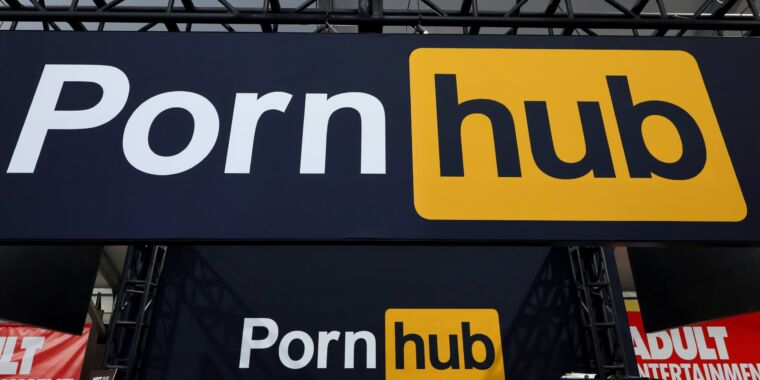SCOTUS agrees to review Texas law that caused Pornhub to leave the state

Getty Images | Kathryn8
The US Supreme Court today agreed to hear a challenge to the Texas law that requires age verification on porn sites. A list of orders released this morning shows that the court granted a petition for certiorari filed by the Free Speech Coalition, an adult-industry lobby group.
In March, the US Court of Appeals for the 5th Circuit ruled that Texas could continue enforcing the law while litigation continues. In a 2-1 decision, 5th Circuit judges wrote that “the age-verification requirement is rationally related to the government’s legitimate interest in preventing minors’ access to pornography. Therefore, the age-verification requirement does not violate the First Amendment.”
The dissenting judge faulted the 5th Circuit majority for reviewing the law under the “rational-basis” standard instead of the more stringent strict scrutiny. The Supreme Court “has unswervingly applied strict scrutiny to content-based regulations that limit adults’ access to protected speech,” Judge Patrick Higginbotham wrote at the time.
Though the 5th Circuit majority upheld the age-verification rule, it also found that a requirement to display health warnings about pornography “unconstitutionally compel[s] speech” and cannot be enforced.
While the Supreme Court could eventually overturn the age-verification law, it is being enforced in the meantime. In April, the Supreme Court declined a request to temporarily block the Texas law.
Pornhub disabled site in Texas
After losing that April decision, the Free Speech Coalition said: “[We] remain hopeful that the Supreme Court will grant our petition for certiorari and reaffirm its lengthy line of cases applying strict scrutiny to content-based restrictions on speech like those in the Texas statute we’ve challenged.”
The Texas law, which took effect in September 2023, applies to websites in which more than one-third of the content “is sexual material harmful to minors.” Those websites must “use reasonable age verification methods” to limit their material to adults.
In February 2024, Texas Attorney General Ken Paxton alleged in a lawsuit that Pornhub owner Aylo (formerly MindGeek) violated the law. Pornhub disabled its website in Texas after the 5th Circuit ruling and has gone dark in other states in response to similar age laws.
The Free Speech Coalition’s petition for certiorari said that the Supreme Court “has repeatedly held that States may rationally restrict minors’ access to sexual materials, but such restrictions must withstand strict scrutiny if they burden adults’ access to constitutionally protected speech.” The group asked the court to determine whether the 5th Circuit “erred as a matter of law in applying rational-basis review to a law burdening adults’ access to protected speech, instead of strict scrutiny as this Court and other circuits have consistently done.”
“While purportedly seeking to limit minors’ access to online sexual content, the Act imposes significant burdens on adults’ access to constitutionally protected expression,” the petition said. “Of central relevance here, it requires every user, including adults, to submit personally identifying information to access sensitive, intimate content over a medium—the Internet—that poses unique security and privacy concerns.”
SCOTUS agrees to review Texas law that caused Pornhub to leave the state Read More »


